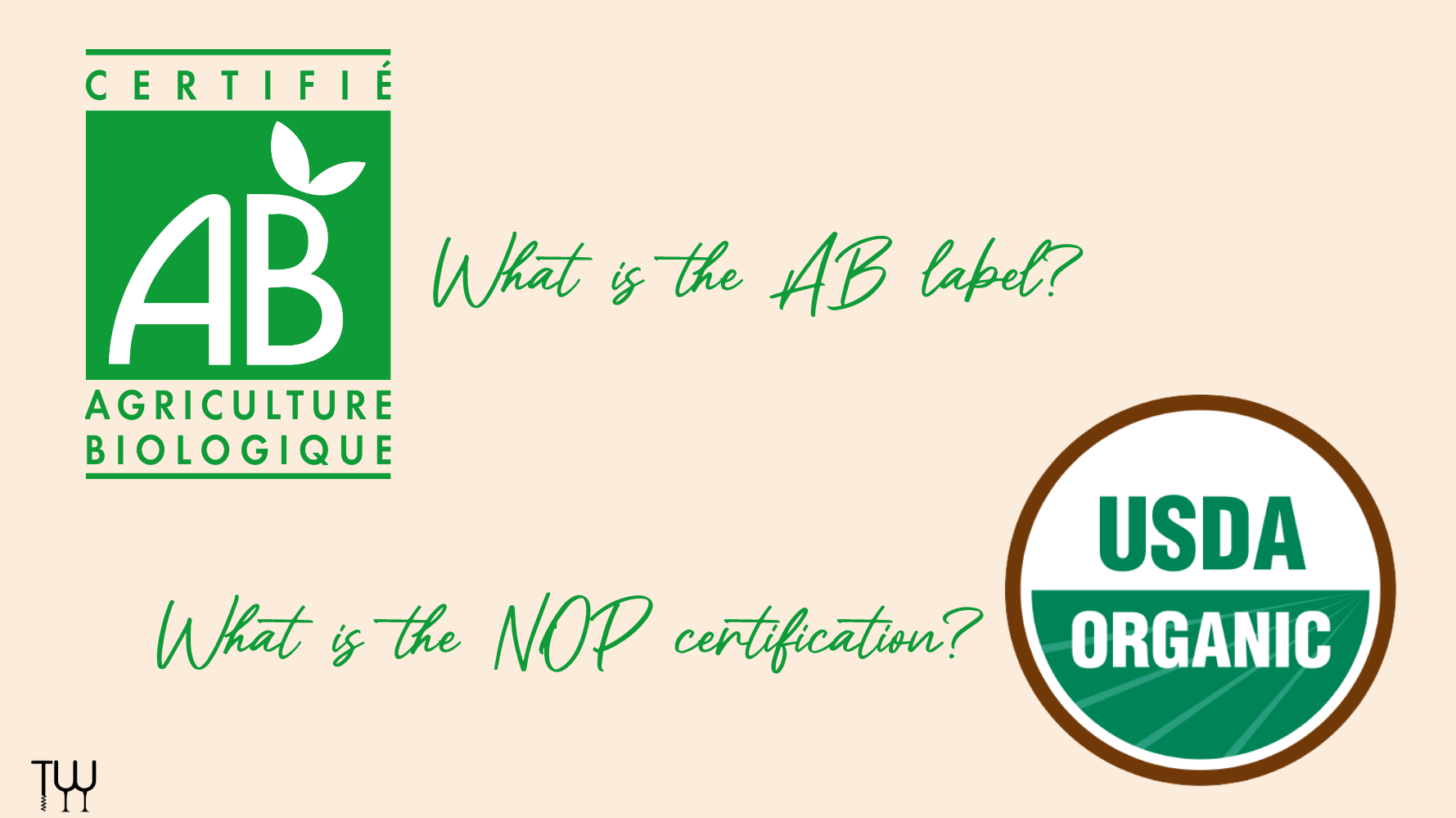
What is the AB label?
Since 2012, the wine of "grapes from organic farming" has become "organic wine" according to European regulation. A specification has been created to establish the practices to be respected.
Organic wine is produced through viticulture without the use of synthetic pesticides or chemical fertilizers. The use of synthetic fungicides, herbicides, and insecticides produced by the agrochemical industry is prohibited. Instead, traditional mineral pesticides such as copper and sulfur are recommended. Working the soil, observing the vines and its environment are objectives for the winegrower to obtain the healthiest grapes possible, even if they are not registered in the charter.
The AB label in France
How can a winemaker be certificated AB?
To transition from conventional to organic farming, European regulations require every winegrower to respect a 36-month conversion period during which they cannot yet label themselves as fully organic, but rather as "in conversion to organic". This conversion period is necessary to ensure that the soil and vineyards are healthy and clean, which is essential to expressing terroir. This step is crucial to guarantee the quality and sustainability of the organic farming process, and while it may take some time, it ultimately leads to a more responsible and eco-friendly approach to winemaking.
The conduct of the vineyard must also respect several techniques:
- implementation of prophylactic measures to reduce the sensitivity of the crop to parasite attacks before resorting to plant protection products
- use of exclusively natural products for fertilization and protection of the vines: organic composts and manures or rock powders.
- prohibition of GMOs or products derived from GMOs.
- management of weeds by mechanical work and, therefore, zero herbicides.
Winemaking as an AB-certificated winemaker.
In addition to the cultivation of the vine, the wine-making process must also meet precise specifications. Organic wines must be made from ingredients of organic origin. Additives are not allowed to be added in the process. The ingredients but also the wine treatment techniques, such as technical treatments, sterilization treatments, and the level of sulfites or filtration are specified in the organic wine specifications. Just like the maintenance of the land, controls are regularly carried out.
NOP Certification (US conversion for AB label)
The National Organic Program (NOP) is a federal program in the United States managed by the United States Department of Agriculture (USDA) that regulates the production, certification, and labeling of organic products. The NOP was created in 2002 to provide clear and consistent standards for the production and certification of organic food. It establishes standards for organic farming practices, including the use of natural fertilizers, animal health management, the limitation of synthetic pesticides, and crop rotation. Companies that wish to sell organic products must be certified by certification bodies approved by the NOP. The NOP also requires that all organic products bear the label "USDA Organic" to indicate that they meet federal standards for organic production. Companies that do not comply with these standards may be sanctioned or even prohibited from marketing their products under the organic label.
The NOP works closely with farmers, producers, processors, and consumers to ensure that organic products meet the highest standards of quality and sustainability. The NOP standards for organic food are recognized as the strictest standards for organic production in the world, and NOP-certified organic products are exported to many countries around the world.
What is the difference between NOP certification and AB label?
The French "AB" (Agriculture Biologique) label and the United States "National Organic Program" (NOP) are two different certification systems for organic products, but they share some basic principles and objectives.
The "AB" label is a French national label that certifies that food products have been produced according to French organic standards, which are based on European Union standards. AB certification is issued by certification bodies approved by the French government and guarantees that products have been produced without pesticides or chemical fertilizers, GMOs, and using sustainable farming practices.
The NOP program, on the other hand, is a US federal program that regulates the production, certification, and labeling of organic products in the US. The NOP standards are similar to those in the EU and require producers to meet strict standards for farming practices, natural resource management, and product processing.
The main differences between the two systems are the specific standards and certification rules that are used. For example, NOP standards allow for a greater number of natural pesticides to be used than AB standards, while AB standards have stricter requirements for soil management and the use of organic seeds.
Ultimately, both systems aim to promote sustainable farming practices and ensure that organic products are produced responsibly and with respect for the environment. Consumers can choose the label or certification system that best suits their personal preferences and values.
At Terrisson Wines, we represent AB producers, who are they?
Domaine Riere Cadene.
Domaine Riere Cadene is a family winery nestled between the Mediterranean Sea and the Pyrenees Mountains in a region called Roussillon. Since 1904, they have used the same traditional skills and have perpetuated their precious understanding of wine from father to son. They are committed to producing high-quality wines that reflect their exceptional terroir in a sustainable way (organic farming since the 2019 vintage). Many years ago, a family of winegrowers began cultivating two exceptionally distinctive terroirs, with an emphasis on freshness, elegance, attention to detail, and the story never ends.
Mas des Genêts from Mourre family
In 1920, the Mourre family left France and moved to Algeria in North Africa, where they produced wine for 42 years. Upon their return, they purchased Domaine Le Colombier. Jean Louis was immediately involved with the estate after completing his studies in geology, fulfilling his lifelong dream of producing fine wine. His knowledge is unlimited and fascinating. Domaine Le Colombier produces around 7,000 cases of wine per year, with old Grenache vines, Syrah, Mourvèdre, and Carignan planted on the property.



32 Rue Robert Mallet Stevens
30900 Nîmes - FRANCE
+33 (0)4.66.23.44.22





